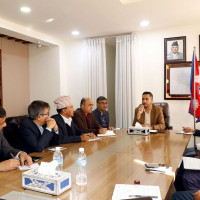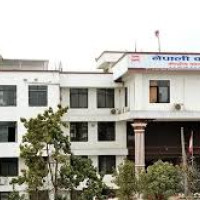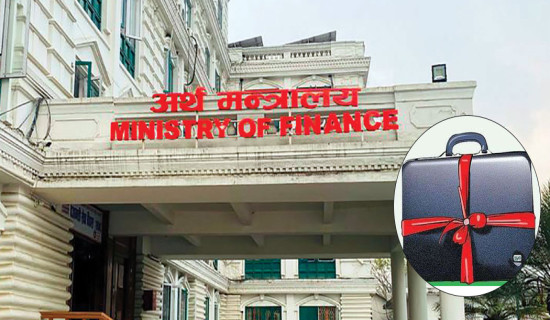- Wednesday, 5 November 2025
New urban policy in offing
Kathmandu, Oct. 18: The Ministry of Urban Development (MoUD) has finalised a new urban policy and sent it to the Cabinet for the approval.
The new policy has included measures to address climate change, urban resilience and Sustainable Development Goals (SDGs) apart from the regular issues of infrastructure development, waste management and social services such as health and education.
“New urban policy has included various indicators of urban development and management. We are hopeful that it will be implemented soon after getting approval from the Cabinet,” Dr. Ramesh Prasad Singh, Secretary of the MoUD said at a programme organised to mark the World Habitat Day 2022 on Monday. The day is celebrated on the first Monday of October but since Nepal was celebrating one of its greatest festivals, Dashain, at that time, the MoUD had decided to mark it later with various programmes including interaction with the experts and stakeholders.
Meanwhile, the ministry has also completed the urban development plan for 185 municipalities across the country while the plan for the remaining municipalities is under preparation. There are 293 municipalities in the country. Secretary Dr. Singh said that the development plan was formulated by incorporating the principles of inclusiveness.
He maintained that the three levels of governments should support and compliment each other in planning, policy and implementation.
Dr. Singh also stated that the government had first announced the potential ‘smart cities’ in the country and began to make them ‘smart’ because it wanted to create an opportunity to develop them from the scratch.
“Large cities like Kathmandu and Biratnagar can’t be restructured. So, we can develop the new cities with all the necessary infrastructure and facilities of a modern urban development,” he said. “It is an opportunity to demonstrate the model cities in the country.”
General Secretary of Municipality Association of Nepal and Mayor of Nilakantha Municipality in Dhading district, Bhim Prasad Dhungana, questioned the government in regard to the parameters that were used to announce the new smart cities.
He criticised the government for not creating model cities in the country, being biased while mobilising the resources to the subnational governments. “We want to do something new in terms of development but where is the successful model for waste management?” he asked.
According to Dhungana, there is not the shortage of resources but local governments have largely failed to mobilise them and create development milestones. He suggested for greater communication and interaction among the various levels of the government and other stakeholders.
Maimunah binti Mohammad Sharif, Executive Director of the United Nations Human Settlements Programme (UN-Habitat), said that the cities are the accelerators of the economic growth.
“If city managers have right policy and tools, they can contribute in reducing the gap between the haves and have-nots,” she said in a video address.
Likewise, Bruno Dercon, Regional Director at the Asia Pacific Office of the UN Habitat, said that waste management, environment protection and efficient transportation should be in the priority list of the cities along with the health and education.
He also stressed on fair access to justice, finance and project benefits.















-original-thumb.jpg)
